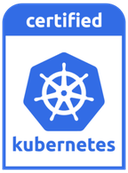mirror of
https://github.com/puppetmaster/typhoon.git
synced 2025-10-23 16:50:04 +02:00
* Originally, poseidon/terraform-render-bootstrap generated
TLS certificates, manifests, and cluster "assets" written
to local disk (`asset_dir`) during terraform apply cluster
bootstrap
* Typhoon v1.17.0 introduced bootstrapping using only Terraform
state to store cluster assets, to avoid ever writing sensitive
materials to disk and improve automated use-cases. `asset_dir`
was changed to optional and defaulted to "" (no writes)
* Typhoon v1.18.0 deprecated the `asset_dir` variable, removed
docs, and announced it would be deleted in future.
* Add Terraform output `assets_dir` map
* Remove the `asset_dir` variable
Cluster assets are now stored in Terraform state only. For those
who wish to write those assets to local files, this is possible
doing so explicitly.
```
resource local_file "assets" {
for_each = module.yavin.assets_dist
filename = "some-assets/${each.key}"
content = each.value
}
```
Related:
* https://github.com/poseidon/typhoon/pull/595
* https://github.com/poseidon/typhoon/pull/678
Typhoon 
Typhoon is a minimal and free Kubernetes distribution.
- Minimal, stable base Kubernetes distribution
- Declarative infrastructure and configuration
- Free (freedom and cost) and privacy-respecting
- Practical for labs, datacenters, and clouds
Typhoon distributes upstream Kubernetes, architectural conventions, and cluster addons, much like a GNU/Linux distribution provides the Linux kernel and userspace components.
Features 
- Kubernetes v1.19.3 (upstream)
- Single or multi-master, Calico or Cilium or flannel networking
- On-cluster etcd with TLS, RBAC-enabled, network policy, SELinux enforcing
- Advanced features like worker pools, preemptible workers, and snippets customization
- Ready for Ingress, Prometheus, Grafana, CSI, and other optional addons
Docs
Please see the official docs and the Google Cloud tutorial.